Women’s giving and philanthropy
Women’s philanthropy has emerged in recent decades as a distinct area using innovative and creative ideas to improve local, national and global communities. Philanthropy Australia is committed to supporting women’s giving with resources, research and inspiring stories. Helping to connect and grow this impactful movement is a key part of our mission to support “more and better” giving.
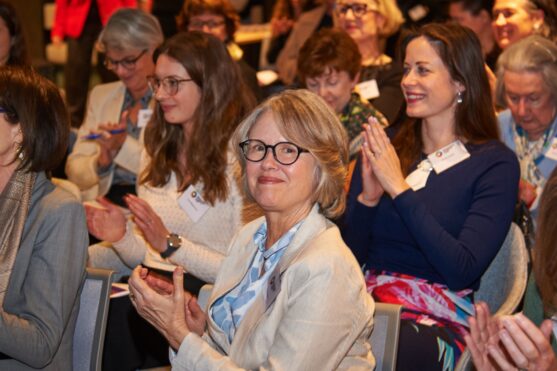
Why is women’s giving important now?
Women are engaged in philanthropy as donors, professionals and executives, fundraisers, volunteers and as not-for-profit leaders.
Women are going to shape the future of philanthropy, and we need to step up and seize that opportunity and responsibility. Not only do we influence most of the giving in the household, we are more philanthropic than men and we are now accumulating more of the wealth.
It’s been identified that women give differently to men and their philanthropy is having an immense impact. Research suggests that women’s giving is at an exciting point in its history for the following reasons:
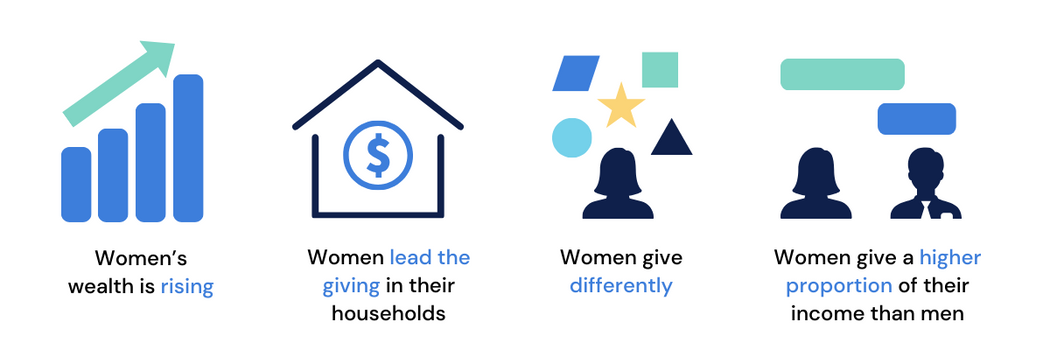
Women’s wealth is rising
Women hold a significant and growing proportion of wealth worldwide1 and evidence suggests that their wealth will build further in the coming decades with women’s greater empowerment and an impending intergenerational wealth transfer. Today, the proportion of women in the workforce who have built their own fortunes is increasing, as well as the capability of their resources. The Australian Financial Review (AFR) reports that in the year prior to March 2024, the wealth of the country’s top 75 richest women has increased by 30%. It is deeply inspiring to note that a good number of women on that list are engaged in philanthropy and giving – and are leading the sector in many areas already. It is heartening to see that several are also members of Philanthropy Australia. We know that a rise in wealth often leads to an extension of philanthropic efforts, engagement and impact.
The AFR article [paywall] highlights Canva co-founder Melanie Perkins, who is 5th on the list with a net worth of $6.8 billion. She says she plans to donate most of her wealth to good causes, notably the “truly ‘crazy big goal’” of lifting people up from extreme poverty. “We don’t believe we should be living on this planet where people don’t have their most basic human needs being met – like food, clean water, basic healthcare, shelter and security… We would love to see that change in our lives and will certainly spend our lifetime working towards that goal.”
Women lead the giving in their households
In an Australian research study conducted on women’s giving2, 77% of women indicated that they model or guide their family’s philanthropic giving. In discussions with research participants, women indicated that they observed their grandmother’s and mother’s involvement in the community and the compassion that they showed others to solve problems. They carry on the tradition of giving back in a quiet and humble way, but are setting an example for their families and friends. By being the major influencer of where their giving of time and donations are directed, they are showing that giving back is and should be a priority. This study also found that women are drawn to organisations through real emotive stories and not stats. They tend to seek further statistical data after they get to know the organisation.
Women give differently – giving circles are on the rise
When women make a gift or volunteer their time and talent to a not-for-profit (NFP) or charitable organisation, they are motivated by compassion, an emotional connection and a desire to see change. Many want to focus on fixing problems at the grassroots level. In the aforementioned research study, 75% of women said they want to understand the needs of the community and then do something about it.
Women also enjoy learning from each other, so collaborating is a key element of their giving. Statistics show women are often involved in giving through community-focused structures, such as giving circles.
The establishment of key Australian women’s organisations such as the Victorian Women’s Trust, the Sydney Women’s Fund and Australians Investing in Women (AIIW) shows women’s tendency toward collaboration to achieve social change.
In Australia, the focus of women’s giving to social services has its roots in the 19th century, particularly in the stories of just two of that era’s generous women. Elizabeth Austin gave a 6,000-pound donation to establish the Austin Hospital, and Anne Bon assisted displaced Aboriginal members of the Taungurung tribe and funded a school for Melbourne’s Chinese immigrant children.
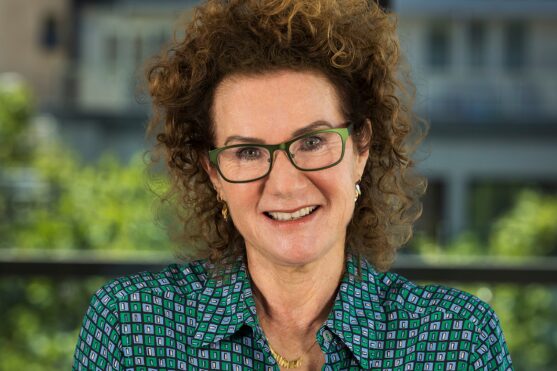
Not everyone necessarily calls themselves philanthropists, or see themselves in that role, but yet they’re contributing enormously to things that matter to them. There’s this view that to be a philanthropist you have to be Nicola Forrest or Melinda Gates – but I don’t think that’s right at all. Anyone who donates their time, money or talent to create a better world is a philanthropist, and I believe that most people would like to do that – create a better world.
Women give a higher proportion of their income than men
There were 560,000 more women than men who made a tax-deductible donation over the five years between 2016-17 and 2020-21. In 2016-17, there were 30,000 more women making a tax-deductible donation. By 2020-21, this difference increased to 190,000 (a six-fold increase even though there were fewer women taxpayers than men).
Australian Women (28.6 %) volunteered at a higher rate than men (24.7%) and older Australians (over age 55) were more likely to volunteer than younger Australians (as of April 2022).
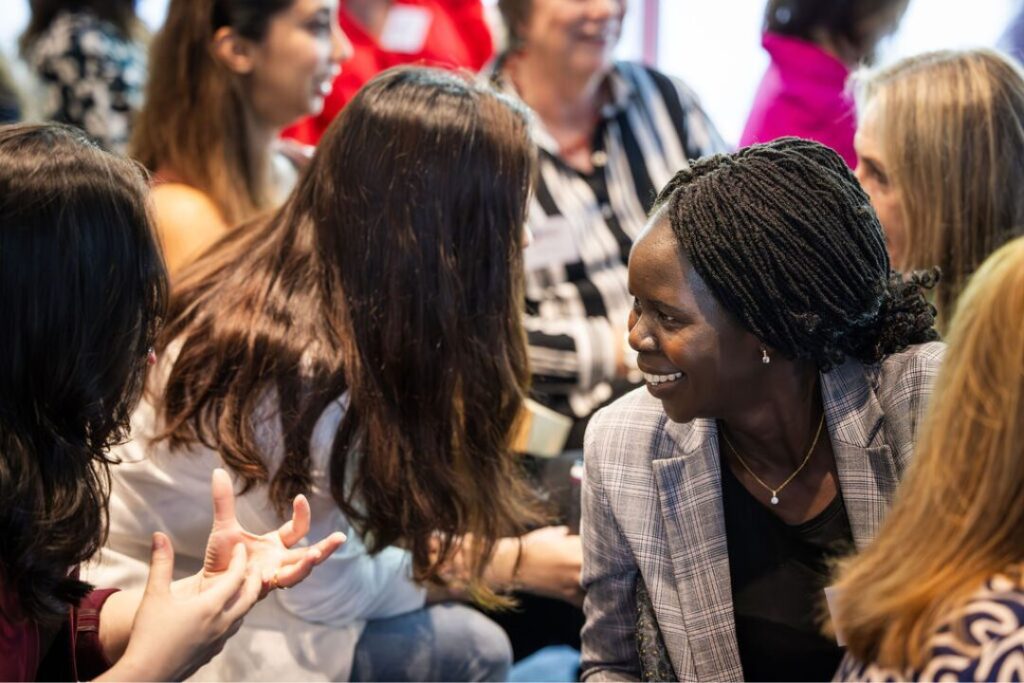
Two women started Philanthropy Australia
Originally launched in 1977 as the Association of Australian Philanthropic Trusts, the two women most instrumental in its establishment were Meriel Wilmot-Wright of The Myer Foundation and Patricia Feilman of the Ian Potter Foundation. They sponsored and led the first seminars in Melbourne in 1971 and 1975 that were intended to build cooperation and exchange between trusts and foundations. These two leading women, affectionately known as ‘the godmothers’ demonstrated the unique collaborative leadership, vision and generosity that is deeply embedded in Australian women’s philanthropy.
Giving and voluntarism have traditionally provided and continue to provide the means through which women have grasped, wielded and maintained public power… As such, philanthropy lies at the heart of women’s history.
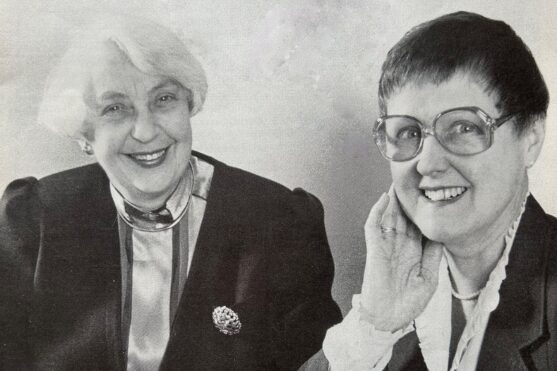
We want to better understand the women’s giving community and help it grow
Have a story to share? Contact us today.
Additional information
In the last 25 years, there has been a growing body of research focusing on how gender can shape behaviors of giving, and most of that research has been conducted overseas. In Australia, the first report focused on capturing women’s giving was published in 2021 and is included below by philanthropy consultant, Kimberly Downes.
Key international findings across multiple studies and leading overseas organisations supporting women’s giving and philanthropy are included in our Resources tab below, and provide valuable guidance for Australians. It is Philanthropy Australia’s expectation that within this decade the body of research and resources will grow, and we will continue to share updates in our mission to influence the growth of Australian women’s giving and philanthropy.
The Role & Influence of Women in Australian Philanthropy, Kimberly Downes, 2021 Australia has a strong philanthropic culture, and this study demonstrates that women in Australia have been, and continue to be, the driving force behind most philanthropic decisions whilst going about their giving in a quiet, humble way, often letting others take the credit.
In Her Gift: Women Philanthropists in Australian History Reproduced from Australian Philanthropy, Issue 71, Summer 2008.
Australian philanthropy resources
- Guide to Giving – a detailed step-by-step guide to philanthropy for donors.
- Ways to give – learn about the most effective ways to give to make a positive impact on our world.
- Perpetual’s Philanthropy Toolkit – a practical step-by-step resource designed to help individuals, families and advisers engage in thoughtful conversations, be effective in their charitable giving and anchor their philanthropy around what most deeply inspires them.
Resources from International organisations suporting women’s giving and philanthropy
Rockefeller Philanthropy Advisers, Women and Giving Guide
This guide provides an introduction to the world of women and philanthropy. Written for both established and emerging donors, it aims to help women delve further into the potential growth and fulfillment that can come from giving. Rockefeller Philanthropy Advisers is considered a global thought leader in philanthropy and their website contains many free resources.
The Lilly School of Philanthropy’s Women’s Philanthropy Institute (WPI) mission is ‘to increase understanding of women’s philanthropy through rigorous research and education – interpreting and sharing insights broadly to improve philanthropy and how gender matters in charitable giving and philanthropy.’
Key resources:
- Women Give series
- WPI paper: Do Women Give More? 2016
- How and Why Women Give WPI Indiana University May 2015
Women and Philanthropy Report 2023 Trust and Transformation: Canadian Women and Philanthropy Private Giving Foundation, Philanthropic Advisory Services, TD Wealth
2023 report with key findings and messages that flowed from the qualitative research focused on the activities and opinions of a sample of Canadian women that participate in various ways in the Canadian charitable sector. Reference is also made to findings surfaced through a review of current literature and third-party research.
Book list
Gender Matters: A Guide to Growing Women’s Philanthropy by Kathleen E Loehr
New research shows that women are the drivers of their families’ philanthropic decisions. Women give more than men. And when they give, they give differently.
Creating a Women’s Giving Circle – The Original Handbook by Sondra Shaw Hardy
Recommended by WPI, the author is considered to be one of the USA’s most knowledgeable expert on giving circle in the US and globally.
Click here to read more stories about Women in Philanthropy
Australians Investing in Women (AIIW):
Australians Investing in Women (AIIW) is a leading not-for-profit organisation that advocates for Gender-wise philanthropy. AIIW encourages all Australians – particularly philanthropic, corporate, and community leaders – to apply a gender lens to their giving and increase investment in women and girls, to help create a fairer and more inclusive society.
International Women’s Development Agency (IWDA)
An Australia-based organisation, resourcing diverse women’s rights organisations primarily in Asia and the Pacific and contributing to global feminist movements to advance our vision of gender equality for all.
A consultancy building a national movement of female led philanthropy
Established in 1985, the Victorian Women’s Trust (VWT) is a proudly independent feminist organisation. We support women, girls and gender diverse people to thrive.
Australian Red Cross Society of Women Leaders (SWL)
A collective giving circle of committed women leaders and philanthropists who work together with a focus on women and children in both Australia and internationally through the work of Australian Red Cross. SWL is part of a global female-led network and consequently presents opportunities to travel overseas and connect with international members.
An international development charity striving for a just world that advances children’s rights and equality for girls. Plan’s Gender Compass, is a first-of-its-kind project which segments the Australian public into six groups according to their beliefs, values, motivators, policy preferences and behaviours around gender equality.
Note: This list is building – please contact us if you know of an organisation in Australia enabling and supporting women’s giving and philanthropy
Comprises women committed to philanthropic pursuits by raising funds to assist low-income individuals and families to ameliorate the effects of climate change on their wellbeing
Northern Rivers Community Foundation Women’s Giving Circle (VIC)
The Giving Circle works towards developing equality and human rights for women and girls through an annual grant program – ‘Empowering Women & Girls’.
Established in 2008 as a sub-fund of Sydney Community Foundation, the Fund’s aim is to increase gender equity and opportunity. Over the past 15 years, it has worked with local communities to create positive change and funded critical programs to help improve the lives of local women and families.
Purpose is to ignite diversity in philanthropy through the power of collective giving to empower women and girls globally.
Melbourne Women’s Foundation (VIC)
An independent charity supporting Melbourne women and families in need since 2014 by using the power of collective giving.
Women’s Environmental Leadership Australia (WELA)
Giving Circle is proud to start the year with a grant round to support women and/or gender-diverse people leading environment and climate action
A giving circle founded in 2014 whose vison is to create an empowering community for women to experience giving with impact
Wayward Woman Giving Fund (WWGF)
Wayward Woman Giving Fund is a vibrant giving circle that encourages Australian women to be micro-philanthropists.
Note: This list is building – please contact us if you know of an organisation in Australia enabling and supporting women’s giving and philanthropy
She Gives is a movement that seeks to highlight women’s giving at any scale, to any cause, accelerating positive social change. Their ambition is to celebrate, share, and inspire women’s giving in Australia.
The campaign is backed by new research and a number of high-profile female leaders in the sector.
Learn more about the She Gives campaign, including how you can get involved.
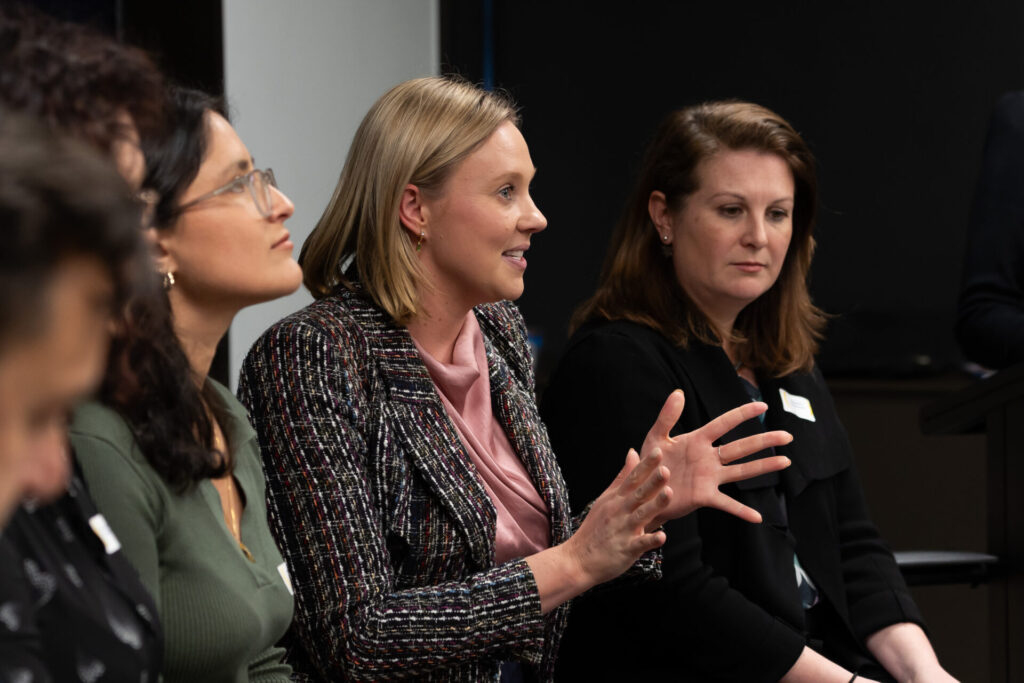
Footnotes
- Women’s Philanthropy Institude, ‘Gender Matters in Philanthropy‘ and The Boston Foundation, ‘How Do Women Do Philanthropy?”
- Kimberly Downes , 2021, ‘The Role & Influence of Women in Australian Philanthropy’